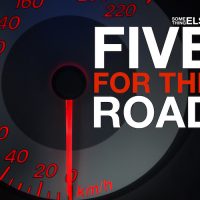An unexpected post-Valentine’s Day treat appeared via Soundcloud and other digital outlets as the Chicagoland-based Chris Greene Quartet released PlaySpace, a live recording of the quartet in full flight at the Evanston, Illinois venue Space.
The Chris Greene Quartet’s followup to the stellar 2017 studio release Boundary Issues continues to demonstrate Greene’s warm, inviting tones on tenor sax and the band’s ability to blend powerful originals as well as interpret the works of others.
“Blues for Dr. Fear” starts PlaySpace swinging. Double bassist Marc Paine and drummer Steve Corley lock in tight as Damian Espinosa toys with the melody on electric piano. Greene’s tenor is joyous. He bounces off the rhythm section, moving the song forward. Espinosa’s solo is restrained yet powerful. “Blues for Dr. Fear” is a powerful start to the show and album.
“Thunder Snow” keeps things at a boil. Chris Greene and Corley open things up then tango in a rhythmic dance of tenor saxophone and drums. Bass and acoustic piano sneak in, providing an almost frantic backing as Greene bops over the melody. Corley’s snare and cymbal-led solo is especially appreciated. Amazing how the band captured the concept of thunder snow and how this live version feels when compared to the one on Boundary Issues.
“Three & Six,” originally from the quartet’s 2012 release A Group Effort, shines just a brightly in this live setting. The song is soulful and sweet. Marc Paine provides a sympathetic and nuanced introduction with his double bass, which melds into the song’s main theme. Steve Corley’s cymbal and brush work tied into Espinosa’s piano is understatedly brilliant. Not to be outdone, Greene’s strong melodic main theme rises to the occasion. The drum breaks and piano solo also help make this the highlight of PlaySpace for me. “Three & Six” certainly invites back-to-back listening with the studio version.
[SOMETHING ELSE! INTERVIEW: Chris Greene discusses a career that’s already included collaborations with Common, the Temptations, Andrew Bird and Steve Coleman, and his unlikely origin story in jazz.]
“The Crossover Appeal (Uno Mas),” another song from Boundary Issues and a Green original, is a powerfully playful romp moved along by the empathetic interplay of Paine and Corley. Espinosa’s Fender Rhodes solo, while mixed too low, releases this funky side and the interplay of Greene’s sax with special guest Marqueal Jordon on alto sax is especially effective. The song’s appeal is obvious.
Wayne Shorter’s “Speak No Evil,” the set closer, demonstrates Chris Green’s affection for Latin music. The arrangement moves along with Espinosa’s effortless piano setting the pace, before Corley enters with his deft rim work. The early drum breakdown is a welcome addition, propelling the song ahead before the entire band wraps things up in grand fashion.
Over all, PlaySpace is a fantastic addition to the Chris Greene Quartet canon. The only downside to the album is that I wasn’t at Space to see it performed.
- Thelonious Monk – ‘Thelonious Himself’ (1957; 2025 vinyl reissue) - May 26, 2025
- Ben Tweedt – ‘Life Cycle’ (2025) - May 25, 2025
- Fernando Perdomo – ‘Waves 5’ (2025) - May 13, 2025



